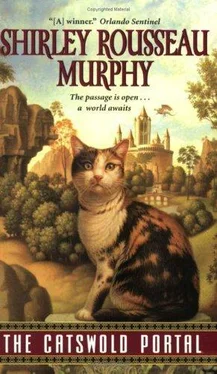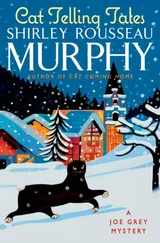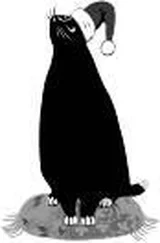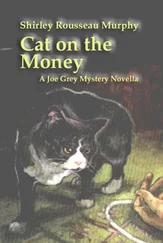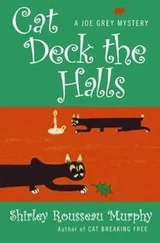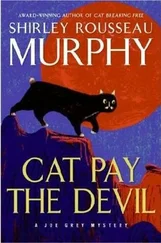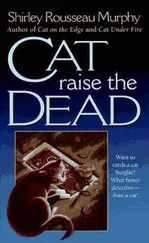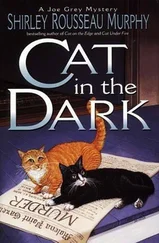Shirley Murphy - The Catswold Portal
Здесь есть возможность читать онлайн «Shirley Murphy - The Catswold Portal» весь текст электронной книги совершенно бесплатно (целиком полную версию без сокращений). В некоторых случаях можно слушать аудио, скачать через торрент в формате fb2 и присутствует краткое содержание. Год выпуска: 2005, ISBN: 2005, Издательство: HarperCollins, Жанр: Старинная литература, на английском языке. Описание произведения, (предисловие) а так же отзывы посетителей доступны на портале библиотеки ЛибКат.
- Название:The Catswold Portal
- Автор:
- Издательство:HarperCollins
- Жанр:
- Год:2005
- ISBN:9780060765408
- Рейтинг книги:4 / 5. Голосов: 1
-
Избранное:Добавить в избранное
- Отзывы:
-
Ваша оценка:
- 80
- 1
- 2
- 3
- 4
- 5
The Catswold Portal: краткое содержание, описание и аннотация
Предлагаем к чтению аннотацию, описание, краткое содержание или предисловие (зависит от того, что написал сам автор книги «The Catswold Portal»). Если вы не нашли необходимую информацию о книге — напишите в комментариях, мы постараемся отыскать её.
The Catswold Portal — читать онлайн бесплатно полную книгу (весь текст) целиком
Ниже представлен текст книги, разбитый по страницам. Система сохранения места последней прочитанной страницы, позволяет с удобством читать онлайн бесплатно книгу «The Catswold Portal», без необходимости каждый раз заново искать на чём Вы остановились. Поставьте закладку, и сможете в любой момент перейти на страницу, на которой закончили чтение.
Интервал:
Закладка:
Now as he carried his bag and unused sketching things across the terrace to the studio, he glanced up the hill again toward the open tool room, trying to focus on Olive Cleaver, get his mind off Alice. He was aware of flashes of light from inside the tool room as Olive worked with her flashbulbs, likely shooting still lifes of the garden tools, arranging earthy little studies.
He went into the studio, dropped his bag and paint box, and made himself a sandwich and opened a beer. When he came out of the house onto the terrace again, Olive was crouched before the oak door, taking pictures of the cats’ faces. This should have amused him, but suddenly he wanted to tell Olive to stop it, stop taking pictures of the cats, stop fooling around with the door. He wanted to tell her to leave the cats alone, that they could be dangerous.
He didn’t like that kind of thought in himself; he didn’t like these crazy notions. Why the hell did he focus on cats? Everywhere he looked, his attention was drawn by cats; he’d gotten his mind fixated on cats. Even on the beach before he left Bodega Bay he’d seen a cat trotting along the sand, hunting among the seaweed, and he had to stop and stare at it. Black-and-white cat. It had stopped, too, and looked at him. Alice would have coaxed it to them, petted it, talked to it, given it part of their lunch. Watching the stray cat, he had imagined Alice there so clearly—her pale hair blowing in the sea wind, her fine-boned face concentrated as she talked to a stray cat. Alice had needed animals around her, had been more at home with animals than with people.
Annoyed with himself but unable to stop brooding, he got some stretcher bars and a roll of canvas and set to work stretching canvases, working on the terrace where it was cooler. Above him at the door of the cats, Olive was still at it. After a quarter hour of photographing the different cats’ heads, Olive let her camera hang idle around her neck, and knelt by the door’s lower hinge. She took a little knife from her pocket, and some envelopes, and began working the knife at the hinged edge of the door as if prying loose a splinter.
She dropped the splinter, or whatever it was, into an envelope, then pried out another from the next plank higher up, and put this in a second envelope. She stood up and took a third sample.
When she had five samples, one from each heavy oak plank that formed the door, she turned and saw him looking up at her. She smiled and waved to him again, went up the garden, and disappeared inside her dark-shingled house. He wanted to go up to the tool room and look at the door where she had cut into it; he wanted to figure out what the hell she had been doing.
But what difference? Anyway, it was her door. The way the lots were laid out in pie shapes joining in the center of the garden, the door was on Olive’s land. If she wanted to pry off splinters, that was her business. Maybe she meant to send her splinters for a carbon-14 test. Maybe Olive suddenly burned to know how old the door was.
As Alice had longed to know.
Alice said if it was genuinely medieval, it shouldn’t be in the garden but in a museum. She had thought it amazing that the door was in such good shape and not rotting. He thought the damn thing was a copy. Who would put a valuable antique in a garden? He had been singularly annoyed by her interest. She never had found out who built it into the hill, though she had gone over old land records and written to several families. Olive had been in on that little investigation—the two of them spending useless hours in the county tax office, complaining afterward because the office was not only cold but stunk of cigarette smoke. The whole thing was an exercise in wasting time, and after Alice died Olive had seemed to turn to other projects. A retired librarian, Olive had retained all her energy and interest in the world; she pursued with singleminded intensity the projects she undertook.
He finished the stretcher bars and began to cut canvas, anticipating four new canvases, pristine white and waiting.
For what? Waiting for what? Waiting for four new, dull, lifeless attempts which would be as unsatisfying as his drive up the coast.
Chapter 8
The scullery was steamy hot and noisy with the gossiping voices of two dozen scullery maids. Pots clanged, knives chopped against cutting boards, and Briccha’s frequent commands cracked like rocks banged together. Smoke from the hearthfire mixed with the steam; the flames hissed and spat as fat dripped onto them from the deer turning on the spit. Beside the deer, braces of chickens roasted. Briccha took Melissa by the shoulders and pointed her toward a counter piled with dead doves and quail. “Pluck and dress them. Don’t leave any feathers. Don’t dawdle. Wash them in that bucket.”
She set to work with distaste. Around her girls kneaded bread dough, mixed sauces, and cut and peeled piles of vegetables and fruits. She wasn’t quick at cleaning birds, even with a simple-spell, and she didn’t like doing it; their softly feathered bodies made her unbearably restless. She hated the blood and the smell of the birds’ entrails because she was unsettled by them, feeling something stirring within herself that she didn’t understand.
It was noon when she finished cleaning the last dove, but she hadn’t earned a rest. Briccha directed her to a pile of greasy pots to scrub. She washed pots for the rest of the day, her hands and arms soon coated with grease, and she was sweating from the hot dishwater. The banter of the other girls distracted her, and a few remarks were directed her way, but she did not attempt to make friends. Late in the afternoon Briccha marched her up the back stairs four flights to the attic.
They entered a long, narrow room whose steep rafters rose to a high peak, and whose walls were lined with tiers of bunks. Briccha pointed to a top bunk at the end, up beneath the rafters. A ladder led up, skirting a small window.
“You’ll sleep there. That’ll do for a few days—you won’t last longer. There’s a blanket and towel on the bunk, a hook by the window for your dress.”
Melissa looked at Briccha evenly. “Why won’t I last longer? Did my work not suit you?”
“Your work was satisfactory.” Briccha turned away. “I wake the early shift at four in the morning. You will go directly to the scullery. You will work until I release you in mid-afternoon.” As she headed for the door, Melissa moved in front of her.
“Why won’t I last?”
Briccha’s narrow eyes widened. “You will not last at all if you cannot control your rudeness.” She pushed past Melissa and strode out the attic door.
Melissa climbed into the high bunk, meaning to rest for only a little while. She didn’t know what Briccha had meant, but she would find out. Pulling the thin blanket up, she lay thinking about the palace dungeons. She had glanced into the scullery storeroom when a girl was sent to get flour. She thought it likely the cellars were near the storeroom to give easy access to the larger food stores, and she wondered if they opened from within the storeroom. Soon she slept. She didn’t wake until Briccha shouted up at her. “Four o’clock. Get down from there. Get dressed.” A lantern burned at the far end of the room.
She climbed down, cramped and uncomfortable in her wrinkled dress. There was a crock of icy water beside the window. Two girls were dipping their towels into it, dabbing at their faces. She dropped her dress and washed herself all over, shivering, trying to wake up. Most of the girls still slept. Only five had been called. She dressed and followed the other four out, crowding sleepily down the dark stair. At home she would have built up the fire and gone back to bed until the cottage warmed, then risen to wake Mag.
Читать дальшеИнтервал:
Закладка:
Похожие книги на «The Catswold Portal»
Представляем Вашему вниманию похожие книги на «The Catswold Portal» списком для выбора. Мы отобрали схожую по названию и смыслу литературу в надежде предоставить читателям больше вариантов отыскать новые, интересные, ещё непрочитанные произведения.
Обсуждение, отзывы о книге «The Catswold Portal» и просто собственные мнения читателей. Оставьте ваши комментарии, напишите, что Вы думаете о произведении, его смысле или главных героях. Укажите что конкретно понравилось, а что нет, и почему Вы так считаете.
